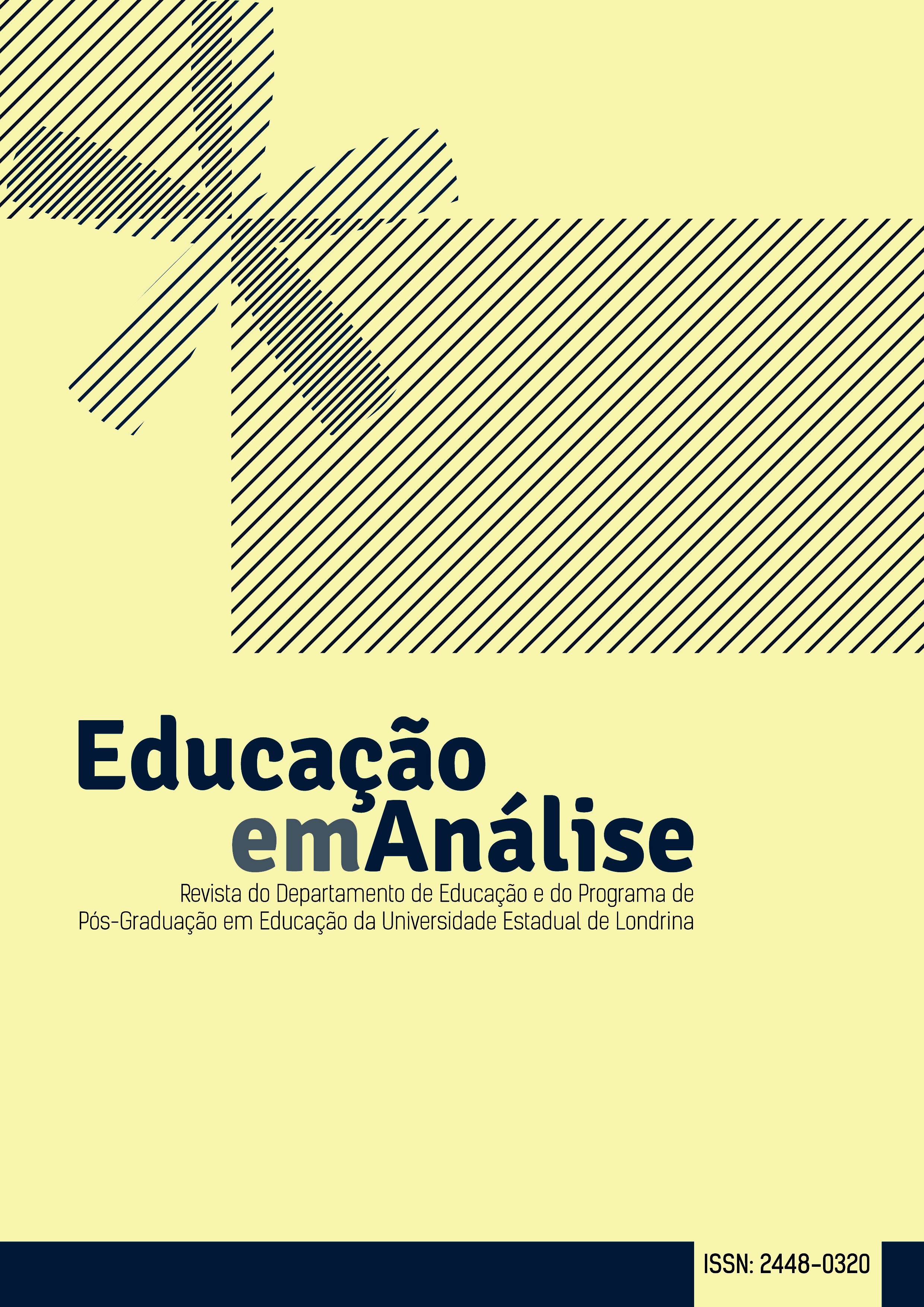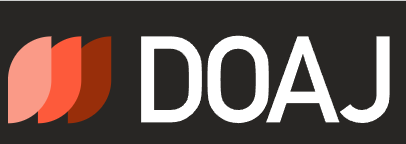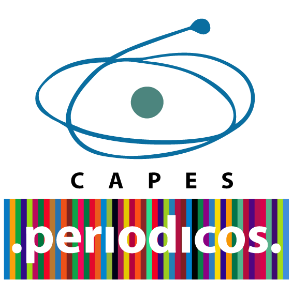Weaving connections between early Childhood Education and Special Education: stitches between practice and training
DOI:
https://doi.org/10.5433/1984-7939.2024v9n2p411Keywords:
Formação docente; Educação Especial; Educação Infantil.Abstract
What weavings are possible (and necessary) in teacher education for work with/for children in Special Education from an inclusive perspective? Based on this question, a methodological strategy is presented through an experiential account of actions taken during the 2nd edition of the course Educação Inclusiva: Tessituras do Fazer Pedagógico at the Faculdade de Educação da Universidade Federal do Rio Grande do Sul. The account represents a delicate stitching, interwoven in the articulation between the school and the university, emphasizing responsible inclusion as an ethical and political stance in advocating for the right to education for everyone. The dialogue is established with and built upon Freirean thinking, where praxis is constituted by hope and dreams, recognizing the political value of the educational task. In conclusion, it is emphasized that inclusion is understood as a path undertaken with people and teams, woven by many hands, responsibly and irrespective of the school setting. Weavings between practice and education invite adopting a co-responsible stance in teaching through a continuous dialogue between different fields of knowledge, interconnection of methodological strategies, investments in formative paths, and broadening the concepts of doing in Early Childhood Education.
Downloads
References
BONDIA, Jorge Larrosa. Notas sobre a experiência e o saber de experiência. Revista Brasielira de Educação, Rio de Janeiro, n. 19, p. 20-28, abr. 2002. DOI: https://doi.org/10.1590/S1413-24782002000100003.
BRASIL. Conselho Nacional de Educação. Parecer CNE/CP n. 9/2001. Diretrizes curriculares nacionais para a formação de professores da educação básica. Brasília, DF: Ministério da Educação, 2001. Disponível em: http://portal.mec.gov.br/escola-de-gestores-da-educacao-basica/323-secretarias-112877938/orgaos-vinculados-82187207/13272-parecer-cp-2001. Acesso em: 3 mar. 2024.
BRASIL. Conselho Nacional de Educação. Resolução CNE/CP n. 2/2015. Define as diretrizes curriculares nacionais para a formação inicial em nível superior (cursos de licenciatura, cursos de formação pedagógica para graduados e cursos de segunda licenciatura) e para a formação continuada. Brasília, DF: Ministério da Educação, 2015. Disponível em: http://portal.mec.gov.br/escola-de-gestores-da-educacao-basica/323-%20secretarias-112877938/orgaos-vinculados-82187207/21028-resolucoes-do-conselho-pleno-2015#:~:text=Resolu%C3%A7%C3%A3o%20CNE%2FCP%20n%C2%BA%202,e%20para%20a%20forma%C3%A7%C3%A3o%20continuada. Acesso em: 3 mar. 2024.
BRASIL. Lei n. 9.394, de 20 de dezembro de 1996. Estabelece as diretrizes e bases da educação nacional. Brasília, DF: Presidência da República, 1996. Disponível em: https://www.planalto.gov.br/ccivil_03/leis/l9394.htm. Acesso em: 3 mar. 2024.
BRASIL. Ministério da Educação. Política nacional de educação especial na perspectiva inclusiva. Brasília, DF: Secretaria de Educação Especial, 2008.
BRASIL. Resolução n. 4, de 2 de outubro de 2009. Institui diretrizes operacionais para o atendimento educacional especializado na educação básica, modalidade educação especial. Brasília, DF: Ministério da Educação, 2009. Disponível em: http://portal.mec.gov.br/dmdocuments/rceb004_09.pdf. Acesso em: 3 mar. 2024.
FÓRUM pela Inclusão Escolar. Porto Alegre: UFRGS, [2024]. Disponível em: www.ufrgs.br/forumpelainclusao/. Acesso em: 20 fev. 2024.
FREIRE, Paulo. Educação como prática da liberdade. Rio de Janeiro: Paz e Terra, 1996.
FREIRE, Paulo. Pedagogia da autonomia: saberes necessários à prática educativa. São Paulo: Paz e Terra, 2007.
FREIRE, Paulo. Pedagogia do oprimido. Rio de Janeiro: Paz e Terra, 1994.
GIORDANI, Liliane Ferrari; LOPES, Luciane Bresciani (org.). Cartas pedagógicas: tessituras em educação inclusiva. São Paulo: Pimenta Cultural, 2023. Disponível em: https://www.pimentacultural.com/livro/cartas-pedagogicas/. Acesso em 20 fev. 2023.
KRAEMER, Graciele Marjana; GIORDANI, Liliane Ferrari; LOPES, Luciane Bresciani (org.). Educação inclusiva: tessituras do fazer pedagógico. Porto Alegre: Cirkula, 2021.
MUSSI, Ricardo Fraklin de Freitas; FLORES, Fabio Fernandes; ALMEIDA, Cláudio Bispo de. Pressupostos para a elaboração de relato de experiência como conhecimento científico. Práxis Educacional, Vitória da Conquista, v. 17, n. 48, p. 60-77, set. 2021. DOI: https://doi.org/10.22481/praxisedu.v17i48.9010.
PORTO ALEGRE. Resolução n. 013 de 05 de dezembro de 2013. Dispõe sobre as diretrizes para a educação especial no sistema municipal de ensino, na perspectiva da educação inclusiva. Porto Alegre: Conselho Municipal de Educação, 2013. Disponível em: https://www2.portoalegre.rs.gov.br/cgi-bin/nph-brs?s1=000036578.DOCN.&l=20&u=/netahtml/sirel/simples.html&p=1&r=1&f=G&d=atos&SECT1=TEXT#:~:text=Resolu%C3%A7%C3%A3o%20n%C2%BA%20013%2F2013%2C%20que,na%20perspectiva%20da%20Educa%C3%A7%C3%A3o%20Inclusiva%22. Acesso em: 3 mar. 2024.
TARDIF, Maurice. Saberes docentes e formação profissional. 17. ed. Petrópolis: Vozes, 2014.
UNESCO. Relatório de Monitoramento Global da Educação 2020: inclusão e educação: todos, sem exceção. Paris: Unesco, 2020. Disponível em: https://unesdoc.unesco.org/ark:/48223/pf0000375582. Acesso em: 28 maio 2024.
Downloads
Published
How to Cite
Issue
Section
License
Copyright (c) 2024 Andréa Matos Zenari, Cíntia Leão, Liliane Ferrari Giordani, Luciane Bresciani Lopes

This work is licensed under a Creative Commons Attribution-NonCommercial 4.0 International License.
Os artigos publicados na Revista Educação em Análise estão sob a Licença Creative Commons Atribuição 4.0 Internacional, garantindo Acesso Aberto. Deste modo, os autores mantêm os direitos autorais de seus trabalhos e, em caso de republicação, solicita-se que indiquem a primeira publicação nesta revista. Essa licença permite que qualquer pessoa leia, baixe, copie e compartilhe o conteúdo, desde que a devida citação seja feita. Além disso, autoriza a redistribuição, adaptação e criação de obras derivadas em qualquer formato ou meio, incluindo uso comercial, desde que a atribuição à revista seja mantida.
A revista se reserva o direito de efetuar, nos originais, alterações de ordem normativa, ortográfica e gramatical, com vistas a manter o padrão culto da língua e a credibilidade do veículo. Respeitará, no entanto, o estilo de escrever dos autores. Alterações, correções ou sugestões de ordem conceitual serão encaminhadas aos autores, quando necessário.
As opiniões emitidas pelos autores dos artigos são de sua exclusiva responsabilidade.
























